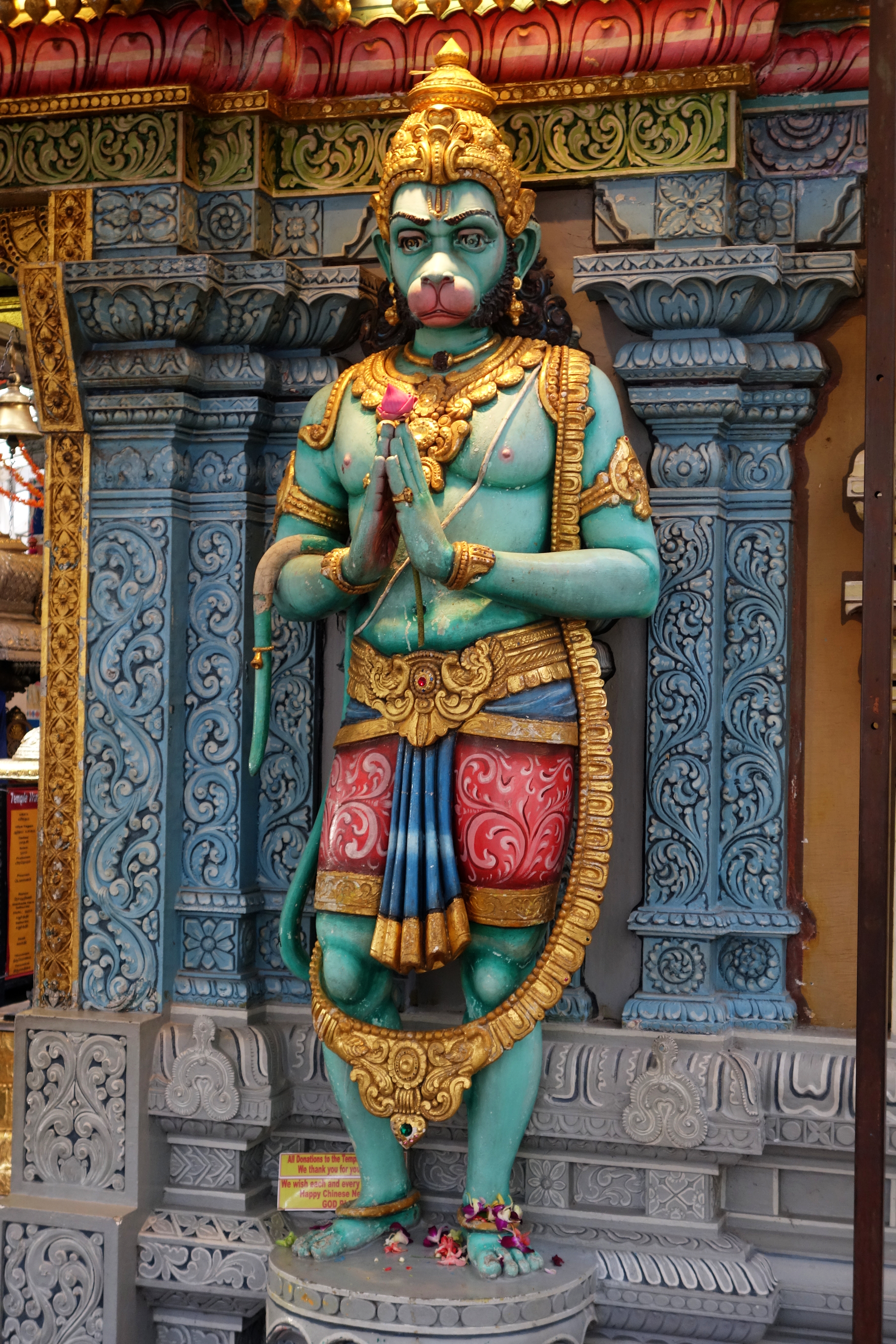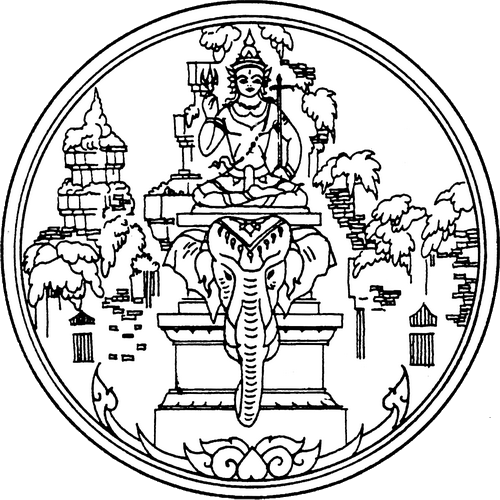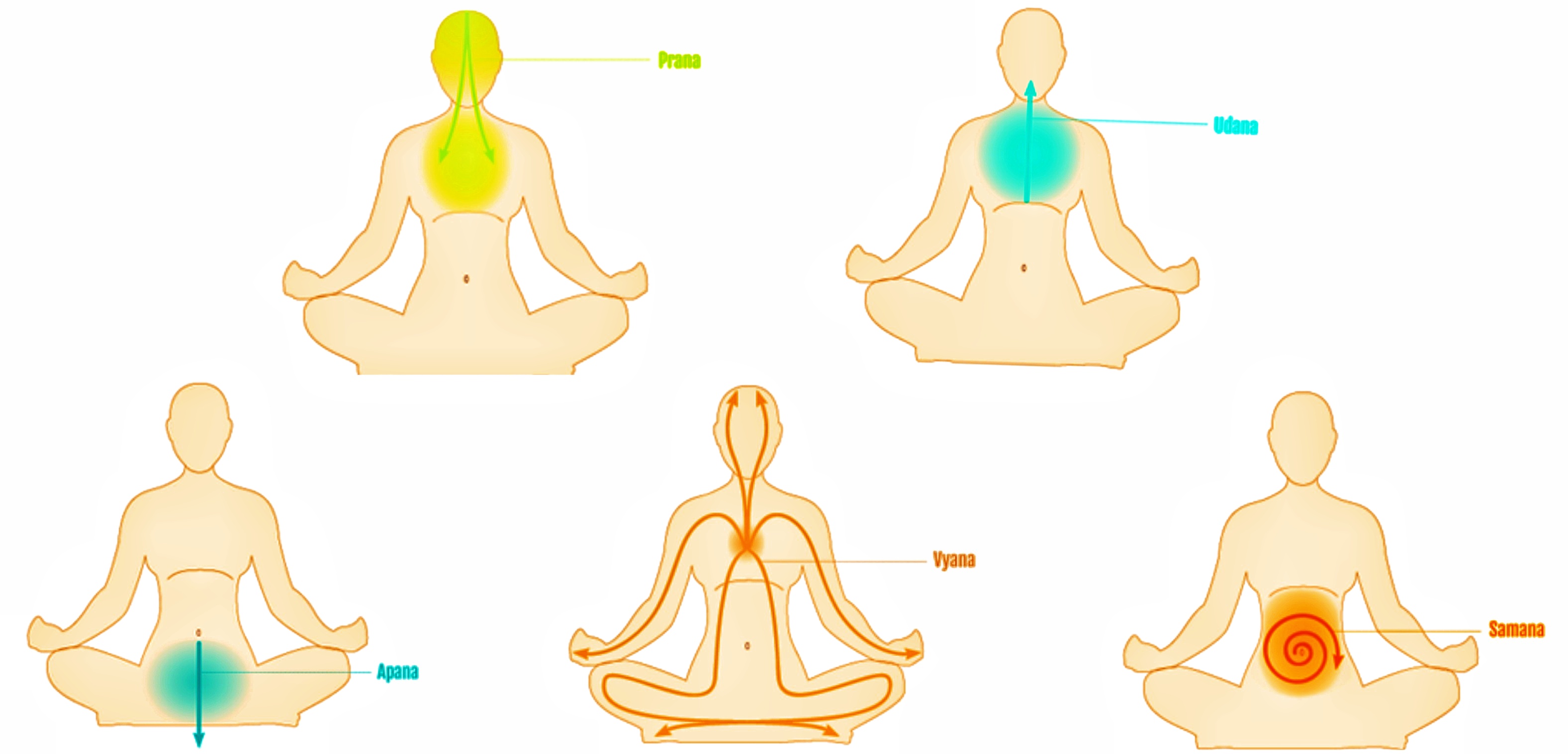|
Vayu
Vayu (; ), also known as Vata () and Pavana (), is the Hindu deities, Hindu god of the winds as well as the divine messenger of the gods. In the ''Vedic scriptures'', Vayu is an important deity and is closely associated with Indra, the king of gods. He is mentioned to be born from the breath of Supreme Being Vishvarupa, Vishvapurusha and also the first one to drink Soma (drink), Soma. The ''Upanishads'' praise him as ''Prana'' or 'life breath of the world'. In the later Hindu scriptures, he is described as a dikpala (one of the guardians of the direction), who looks over the north-west direction. The Hindu epics describe him as the father of the god Hanuman and Bhima. The followers of the 13th-century saint Madhva believe their guru as an avatar, incarnation of Vāyu. They worship the wind deity as Mukhyaprana () and consider him as the son of the god Vishnu. Connotations The word for air (classical element), air (''vāyu'') or wind (''pavana'') is one of the Classical eleme ... [...More Info...] [...Related Items...] OR: [Wikipedia] [Google] [Baidu] |
Hanuman
Hanuman (; , ), also known as Maruti, Bajrangabali, and Anjaneya, is a deity in Hinduism, revered as a divine ''vanara'', and a devoted companion of the deity Rama. Central to the ''Ramayana'', Hanuman is celebrated for his unwavering devotion to Rama and is considered a '' chiranjivi''. He is traditionally believed to be the spiritual offspring of the wind deity Vayu, who is said to have played a significant role in his birth. In Shaiva tradition, he is regarded to be an incarnation of Shiva, while in most of the Vaishnava traditions he is the son and incarnation of Vayu. His tales are recounted not only in the ''Ramayana'' but also in the '' Mahabharata'' and various ''Puranas''. Devotional practices centered around Hanuman were not prominent in these texts or in early archaeological evidence. His theological significance and the cultivation of a devoted following emerged roughly a millennium after the ''Ramayana'' was composed, during the second millennium CE.Paula Richman ... [...More Info...] [...Related Items...] OR: [Wikipedia] [Google] [Baidu] |
Madvacharya
Madhvacharya (; ; 1199–1278 CE or 1238–1317 CE), also known as Purna Prajna () and Ānanda Tīrtha, was an Indian philosopher, theologian and the chief proponent of the ''Dvaita'' (dualism) school of Vedanta. Madhva called his philosophy ''Tattvavāda'' meaning "arguments from a realist viewpoint". Madhvacharya was born at Pajaka near Udupi on the west coast of Karnataka state in 13th-century India. As a teenager, he became a Sanyasi (monk) joining Brahma-sampradaya guru Achyutapreksha, of the Ekadandi order. Madhva studied the classics of Hindu philosophy, and wrote commentaries on the Principal Upanishads, the ''Bhagavad Gita'' and the Brahma Sutras (''Prasthanatrayi''), and is credited with thirty seven works in Sanskrit. His writing style was of extreme brevity and condensed expression. His greatest work is considered to be the '' Anuvyakhyana'', a philosophical supplement to his bhasya on the Brahma Sutras composed with a poetic structure. In some of his works, he pr ... [...More Info...] [...Related Items...] OR: [Wikipedia] [Google] [Baidu] |
Bhima
Bhima (, ), also known as Bhimasena (, ), is a hero and one of the most prominent characters in the Hindu epic ''Mahabharata''. As the second of the five Pandava brothers, Bhima was born to Kunti—the wife of King Pandu—fathered by Vayu, the wind god, which bestowed upon him superhuman strength from birth. His rivalry with the Kauravas, especially Duryodhana, defined much of his life, with this tension ultimately erupting in the Kurukshetra War, where Bhima killed all hundred Kaurava brothers. Bhima's life was filled with extraordinary episodes that showcased his strength and bravery. From childhood, where he was poisoned, to his victories over formidable foes like Bakasura, Hidimba, and Jarasandha, Bhima's adventures are integral to the ''Mahabharata''’s storyline. His raw, earthy nature is reflected in the brutal slaying of his enemies, his immense appetite and his marriage with Hidimbi, a rakshasi (a demoness), who bore him a son, Ghatotkacha, a powerful warrior who woul ... [...More Info...] [...Related Items...] OR: [Wikipedia] [Google] [Baidu] |
Hindu Deities
Hindu deities are the gods and goddesses in Hinduism. Deities in Hinduism are as diverse as its traditions, and a Hindu can choose to be polytheistic, pantheistic, monotheistic, monistic, even agnostic, atheistic, or humanist. Julius J. Lipner (2009), Hindus: Their Religious Beliefs and Practices, 2nd edition, Routledge, , p. 8; Quote: "(...) one need not be religious in the minimal sense described to be accepted as a Hindu by Hindus, or describe oneself perfectly validly as Hindu. One may be polytheistic or monotheistic, monistic or pantheistic, even an agnostic, humanist or atheist, and still be considered a Hindu." The terms and epithets for deities within the diverse traditions of Hinduism vary, and include Deva, Devi, Ishvara, Ishvari, Bhagavān and Bhagavati. The deities of Hinduism have evolved from the Vedic era (2nd millennium BCE) through the medieval era (1st millennium CE), regionally within Nepal, Pakistan, India and in Southeast Asia, and across Hinduism ... [...More Info...] [...Related Items...] OR: [Wikipedia] [Google] [Baidu] |
Astra (weapon)
An () is a supernatural weapon in Hindu epics. It is presided over by a specific deity and imbued with spiritual and occult powers. The term came to denote any weapon that was released from the hand (such as an arrow), compared to holding it (such as a sword). The bearer of an ''astra'' is an ''astradhari'' (). History Astras are supernatural weapons invoked using ''mantras''. In battle, a warrior would use a mantra to convert any weapon (usually an arrow) into a divine weapon. Astras comprise four classes of weapons. The origin of Astras is elaborated in the ''Ahirbudhnya Samhita'', a dialogue between Sage Narada and Shiva. When Narada asks Shiva about the origin of Astras, the god recounts a story: Eons ago, before the universe was created, Vishnu assumed many forms for his own amusement. Eventually, he assumed the form of Brahma and created the universe. In order to protect the universe from wicked beings of his own creation, Vishnu created the Sudarshana Chakra. However, only ... [...More Info...] [...Related Items...] OR: [Wikipedia] [Google] [Baidu] |
Rigveda
The ''Rigveda'' or ''Rig Veda'' (, , from wikt:ऋच्, ऋच्, "praise" and wikt:वेद, वेद, "knowledge") is an ancient Indian Miscellany, collection of Vedic Sanskrit hymns (''sūktas''). It is one of the four sacred canonical Hindu texts (''śruti'') known as the Vedas. Only one Shakha of the many survive today, namely the Shakala Shakha, Śakalya Shakha. Much of the contents contained in the remaining Shakhas are now lost or are not available in the public forum. The ''Rigveda'' is the oldest known Vedic Sanskrit text. Its early layers are among the oldest extant texts in any Indo-European language. Most scholars believe that the sounds and texts of the ''Rigveda'' have been orally transmitted with precision since the 2nd millennium BCE, through Indian mathematics#Styles of memorisation, methods of memorisation of exceptional complexity, rigour and fidelity, though the dates are not confirmed and remain contentious till concrete evidence surfaces. Philolog ... [...More Info...] [...Related Items...] OR: [Wikipedia] [Google] [Baidu] |
Deva (Hinduism)
''Deva'' (, ) means 'shiny', 'exalted', 'heavenly being', 'divine being', 'anything of excellence', and is also one of the Sanskrit terms used to indicate a deity in Hinduism.Monier Monier-Williams, A Sanskrit-English Dictionary” Etymologically and Philologically Arranged to cognate Indo-European Languages, Motilal Banarsidass, page 492 ''Deva'' is a masculine term; the feminine equivalent is ''Devi (Hinduism), Devi''. The word is a cognate with Latin ''deus'' ('god') and Greek Zeus. In the earliest Vedic literature, all supernatural beings are called ''Devas''George Williams (2008), A Handbook of Hindu Mythology, Oxford University Press, , pages 90, 112 and ''Asuras''. The concepts and legends evolved in Indian literature#In archaic Indian languages, ancient Indian literature, and by the late Vedic period, benevolent supernatural beings are referred to as ''Deva-Asuras''. In post-Vedic Hindu texts, such as the Puranas and the Itihasas of Hinduism, the ''Devas'' represent the g ... [...More Info...] [...Related Items...] OR: [Wikipedia] [Google] [Baidu] |
Vahana
''Vāhana'' () or ''vahanam'' () denotes the being, typically an animal or mythical entity, a particular Hindus, Hindu deity is said to use as a vehicle. In this capacity, the vāhana is often called the deity's "mount". Upon the partnership between the deity and his vāhana is woven much Hindu iconography, iconography and Hindu mythology, Hindu theology. Deities are often depicted riding (or simply mounted upon) the vāhana. Other times, the vāhana is depicted at the deity's side or symbolically represented as a divine attribute. The vāhana may be considered an :wikt:accoutrement, accoutrement of the deity: though the vāhana may act independently, they are still functionally emblematic or even :wikt:syntagmatic, syntagmatic of their "rider". The deity may be seen sitting or standing on the vāhana. They may be sitting on a small platform, or riding on a saddle or bareback. [...More Info...] [...Related Items...] OR: [Wikipedia] [Google] [Baidu] |
Vyāna
In yoga, Ayurveda, and Indian martial arts, prana (, ; the Sanskrit word for breath, " life force", or "vital principle") permeates reality on all levels including inanimate objects. In Hindu literature, prāṇa is sometimes described as originating from the Sun and connecting the elements. Five types of prāṇa, collectively known as the five ''vāyus'' ("winds"), are described in Hindu texts. Ayurveda, tantra and Tibetan medicine all describe ''prāṇa vāyu'' as the basic vāyu from which the other vāyus arise. Prana is divided into ten main functions: The five Pranas – Prana, Apana, Udana, Vyana and Samana – and the five Upa-Pranas – Naga, Kurma, Devadatta, Krikala and Dhananjaya. Pranayama, one of the eight limbs of yoga, is intended to expand conscious awareness of prana. Etymology V.S. Apte provides fourteen different meanings for the Sanskrit word ' () including breath or respiration; the breath of life, vital air, principle of life (usually plural in th ... [...More Info...] [...Related Items...] OR: [Wikipedia] [Google] [Baidu] |
Wind
Wind is the natural movement of atmosphere of Earth, air or other gases relative to a planetary surface, planet's surface. Winds occur on a range of scales, from thunderstorm flows lasting tens of minutes, to local breezes generated by heating of land surfaces and lasting a few hours, to global winds resulting from the difference in absorption (electromagnetic radiation), absorption of solar energy between the climate zones on Earth. The study of wind is called anemology. The two main causes of large-scale atmospheric circulation are the differential heating between the equator and the poles, and the rotation of the planet (Coriolis effect). Within the tropics and subtropics, thermal low circulations over terrain and high plateaus can drive monsoon circulations. In coastal areas the sea breeze/land breeze cycle can define local winds; in areas that have variable terrain, mountain and valley breezes can prevail. Winds are commonly classified by their scale (spatial), spatial ... [...More Info...] [...Related Items...] OR: [Wikipedia] [Google] [Baidu] |
Vayavyastra .
Vayavyastra () is a celestial weapon (astra) in Hindu mythology. Named after and attributed to the wind god Vayu, the weapon is referenced in various Hindu texts, such as the Mahabharata and the Puranas Puranas (Merriam-Webster's Encyclopedia of Literature (1995 Editio ... References Astras Weapons in Hindu mythology {{DEFAULTSORT:Vayavyastra ...[...More Info...] [...Related Items...] OR: [Wikipedia] [Google] [Baidu] |
Anila
Anila () is one of the Vasus in Hinduism, the gods of the elements of the cosmos. He is often associated with the wind god Vayu Vayu (; ), also known as Vata () and Pavana (), is the Hindu deities, Hindu god of the winds as well as the divine messenger of the gods. In the ''Vedic scriptures'', Vayu is an important deity and is closely associated with Indra, the king o ..., regarded to be a form of the deity when numbered among the Vasus.Gaṅgā Rām Garg -''Encyclopaedia of the Hindu World'' 1992 - Page 479 " Anila See Anila Vatyayana. Anila Synonym of Visnu (Mb. Anu. 149.38). Anila Synonym of Siva (Mb. Anu. 149.100). Anila The god of wind: Vayu (q.v.). Anila The 'immortal air', to which at death mortal breath returns, as the body burns to ..... Anila Fifth of the Asta (8) Vasus. His father was Dharma and mother Svasa. Anila's wife was Siva, by whom he had two sons: Manojava and Avijnanagati ... 1.15.110-15). He attended Skanda's investiture. See Vasu." References ... [...More Info...] [...Related Items...] OR: [Wikipedia] [Google] [Baidu] |








